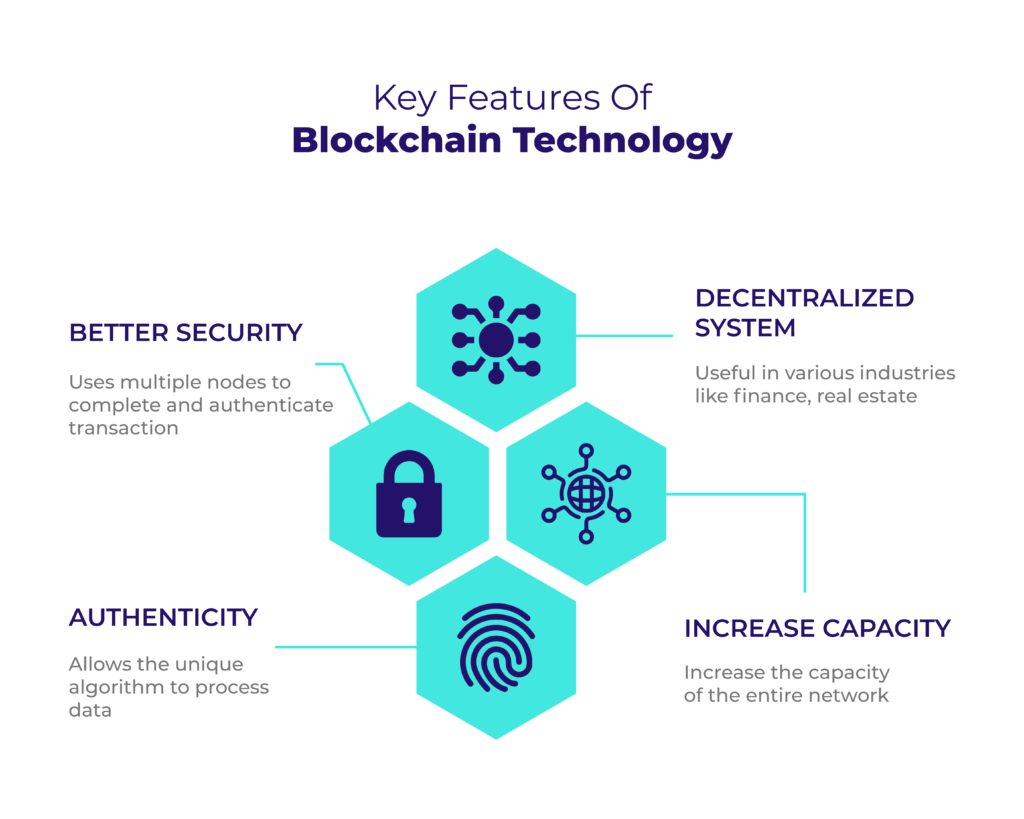In the dynamic landscape of mobile app development, where the competition is fierce and innovation is the key to success, start-ups are increasingly turning to cutting-edge technologies to gain a competitive edge. One such technology that has gained prominence beyond its association with cryptocurrencies like Bitcoin is blockchain. Originally designed to ensure the stability of cryptocurrency transactions, blockchain development services have now found their way into mobile apps, providing not only faster transactions but also robust security for user information.
The Rise of Blockchain in Mobile Apps
Decentralized Security
Blockchain serves as a decentralized ledger that records transactions transparently and securely across all stakeholders. This transparency enhances app security, making it virtually impossible for fraudulent transactions to occur without detection. The immutable nature of blockchain ensures that once a transaction is recorded, it cannot be tampered with, providing an extra layer of security.
Versatility Across Industries
The application of blockchain extends beyond financial transactions. Its integration into mobile apps facilitates various functions, from digital transactions to peer-to-peer interactions. Start-ups can leverage blockchain to maintain irrefutable records of diverse transactions, aligning with the specific needs of their mobile apps.
Automation and Efficiency
Blockchain applications have the potential to revolutionize existing business models by providing lower-cost, instant solutions. Automation of manual and time-consuming processes becomes feasible, streamlining operations and reducing costs. The use of blockchain protocols enhances the accessibility of digital transactions, contributing to the overall efficiency of business processes.
Enduring Technology
The robust encryption underlying blockchain ensures its longevity, even if cryptocurrencies face challenges. With backing from major financial institutions, real estate consortiums, healthcare organizations, and other industries requiring secure transaction tracking, blockchain is poised to remain relevant in the coming years.
Evaluating Blockchain Suitability for Start-ups
Understanding Bitcoin’s Blockchain
Start-ups contemplating the integration of blockchain need to grasp the fundamentals of Bitcoin’s blockchain. This understanding helps in making informed decisions and trade-offs, aligning the implementation with the specific requirements of the mobile app.
Tailoring Implementation to Requirements
Design decisions made for Bitcoin’s blockchain may not necessarily align with the diverse needs of start-ups. The integration should be tailored to the unique requirements of the mobile app, considering factors such as peer-to-peer interactions and pseudonymous electronic cash systems.

Practical Applications for Start-ups
Securing Mobile Payments
A primary application of blockchain in mobile apps is enhancing the security of mobile payments. Start-ups can instill trust in mobile banking through secure mobile apps, fostering a greater user base. Partnerships, such as that between TelCoin and telecom companies, showcase the potential for secure mobile payments for users without traditional bank accounts.
Land Rights Documentation
Companies like Landmapp use blockchain to develop services and mobile apps documenting land rights and titles. This enhances transparency and reduces costs, particularly in developing regions like Africa.
Real Estate Streamlining
Blockchain is streamlining real estate transactions, exemplified by apps like ShelterZoom. These apps aim to revolutionize the way real estate offers are made, providing a secure and efficient platform built on blockchain technology.
Identity Verification
Even industry giants like IBM are leveraging blockchain for identity verification. Services like obtaining a driving license or opening a bank account can benefit from blockchain’s secure and decentralized identity verification.
Challenges in Developing Blockchain Apps
Complexity and Security
Developing blockchain apps is not straightforward, and ensuring their security adds a layer of complexity. Skilled mobile app developers with expertise in blockchain development are still in short supply.
Establishing Standards and Tools
Setting up the right standards and utilizing appropriate tools is crucial to encourage more developers to enter the field. A clear understanding of the purpose and utility of blockchain for a specific business is essential to guide the development process.
Utilizing Open Source Platforms
Open-source blockchain platforms, such as OpenChain, MultiChain, and Hyperledger, can significantly ease the development of blockchain-based mobile apps. Start-ups should capitalize on these platforms to streamline the development process.
Continuous Learning and Adaptation
Given the rapid evolution of technology, developers must constantly upgrade their skills. Academic upgrades, training programs, and active participation in social media and panel discussions are essential to stay abreast of the latest developments in blockchain technology.
Conclusion
The marriage of blockchain and mobile app development represents a transformative step for start-ups seeking innovation and competitive advantage. By understanding the unique needs of their applications, leveraging open-source platforms, and staying abreast of evolving technologies, start-ups can navigate the challenges and harness the full potential of blockchain for secure and efficient mobile solutions. As blockchain continues to mature, its role in shaping the future of mobile app development cannot be overstated.






